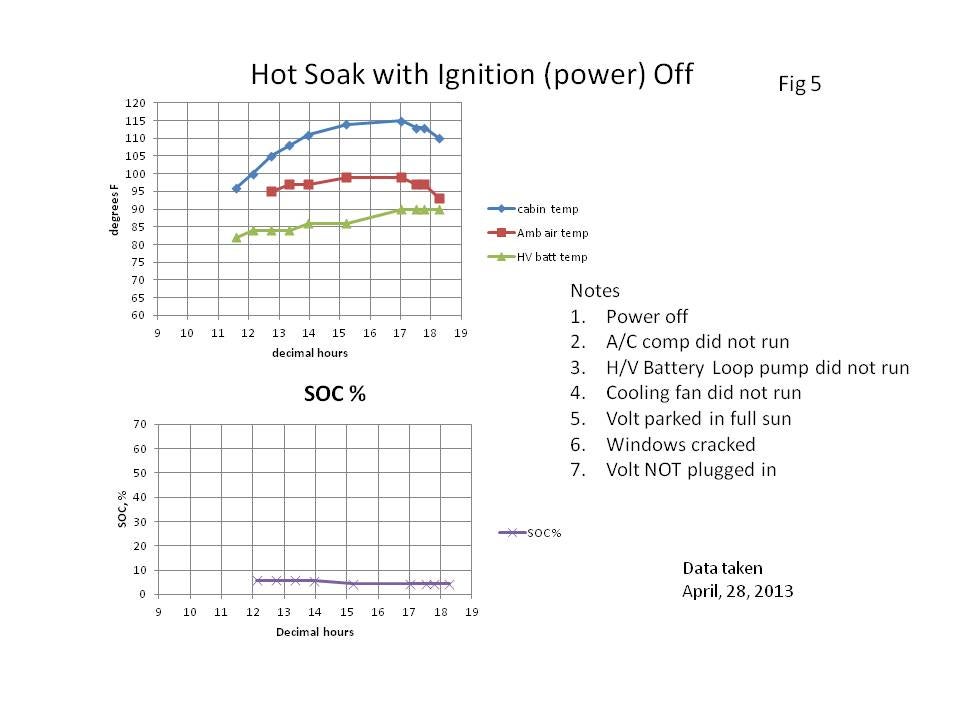LEAFfan said:
If the LEAF had TMS, and you parked outside with our ambient heat, what good do you think it would really do? Sure, it would keep the pack cooler, but rob your capacity to run it while the car is just sitting for hours. And when the capacity lowers to a certain level, the TMS shuts off. The only time it would really help would be while plugged in and like I said, it's really noisy while running.
If the LEAF had TMS, it would imply that MUCH better insulation can be wrapped around the battery to prevent the ambient temperature from penetrating into the battery too quickly. But without TMS, thick insulation cannot be added because then the heat inside the battery can't escape. That's the other BIG difference that TMS brings to the table which not enough people recognizes.
The combination of the thick insulation and the still very nice and cool thermal mass of the big battery even when arriving at work (because TMS keeps operating during the drive to work) means that it will be a long time before the ambient temperature will get around to penetrating the battery deep enough to bring its thermal mass up to outside the optimum temperature zone. So the battery with TMS will not really have to face the high internal temperature for very long. Maybe only for a short time in the later afternoon, but before long, the work day already ends and the owner already hops in and takes off, at which time TMS kicks in again during driving to resume the cooling. Then it continues to cool at home as long as it takes during charging to keep the battery happy and free from the heat stress.
TMS running while plugged in at home is not anymore noisy than running a cooling fan if you hang out in the garage. But nobody hangs out inside their garage in the hot Phoenix summer anyway, so the noise is not an issue at all because nobody is ever there inside the garage for long, even if it can be considered loud enough to annoy anyone in the first place.




